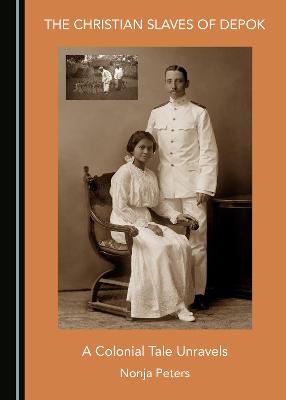This book recounts the little-known history of Cornelis Chastelein, a high-ranking official of the Dutch East India Company and the 150-200 slaves he purchased from slave markets around South-East Asia, to work his landed estates in the Batavian (Jakarta) hinterlands. It traces the making and unravelling of his dream to create a self-sustaining Christian community of freed slaves in the midst of a Muslim stronghold. To this end, on his death on 28 June 1714, he freed most of his slaves, and bequeathed those who had embraced Christianity, his 1244-hectare Depok estate in 'collective ownership.'The book isolates behaviours and events that influenced these Depokkers' lives after Chastelein's death, such as endogamy, religion, war, revolution and diaspora. Its main characters are the missionaries bent on Depokkers' Dutchification, the Japanese invaders who demand obedience to their 'Asia for the Asians' thinking, and the Indonesian Pemuda (freedom fighters), who insist Depokkers throw their weight behind the Independence movement. Enslavement made Depokkers inbetweeners. In the Netherlands, they were considered Indonesian, and the Dutch to whom they thought they belonged painfully excluded them. Following the transfer of sovereignty, the Republic of Indonesia confiscated the rice fields of those that stayed and labelled them Belanda Depok (black Hollanders). The history of the Depokkers is a tale of survival in the face of adversity that takes in the dying embers of the Netherlands East Indies and the birth of Indonesia.
- ISBN13 9781527570825
- Publish Date 5 August 2021
- Publish Status Active
- Publish Country GB
- Imprint Cambridge Scholars Publishing
- Edition Unabridged edition
- Format Hardcover
- Pages 530
- Language English
